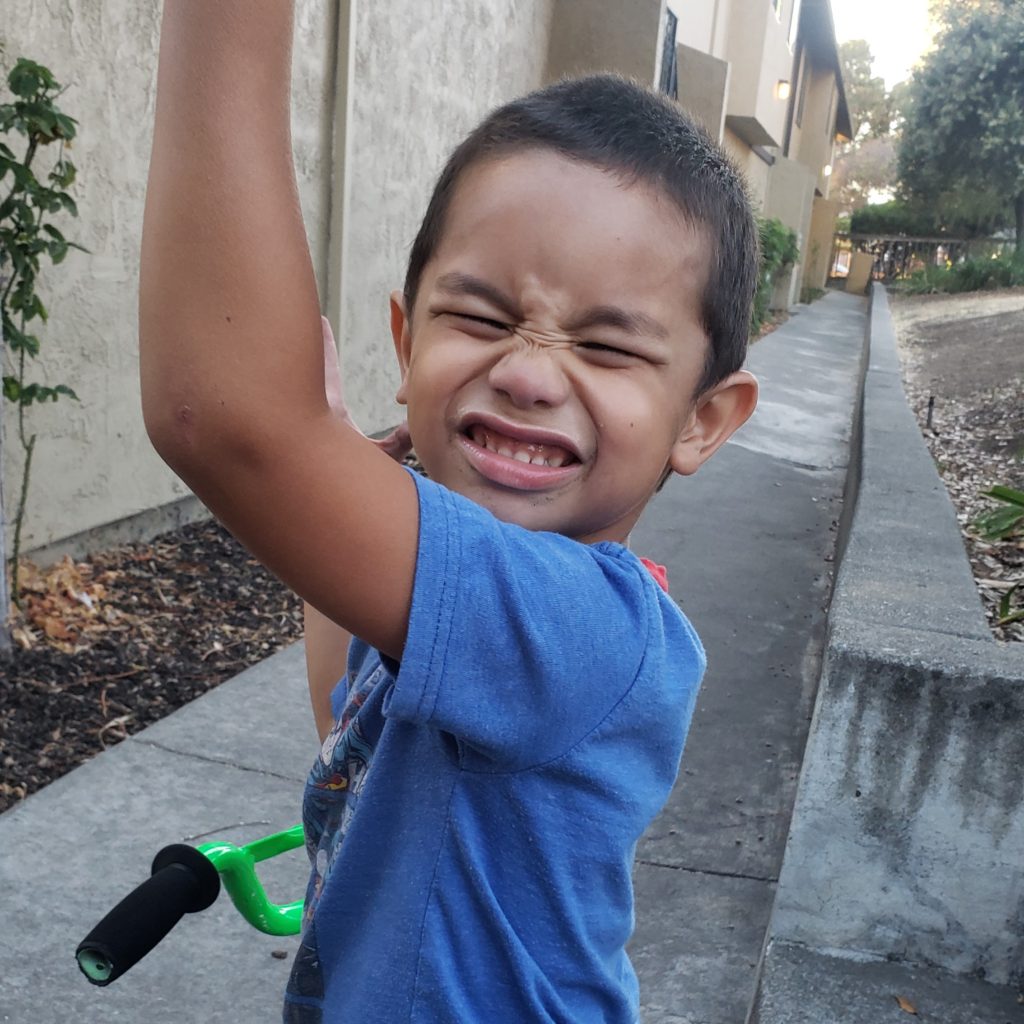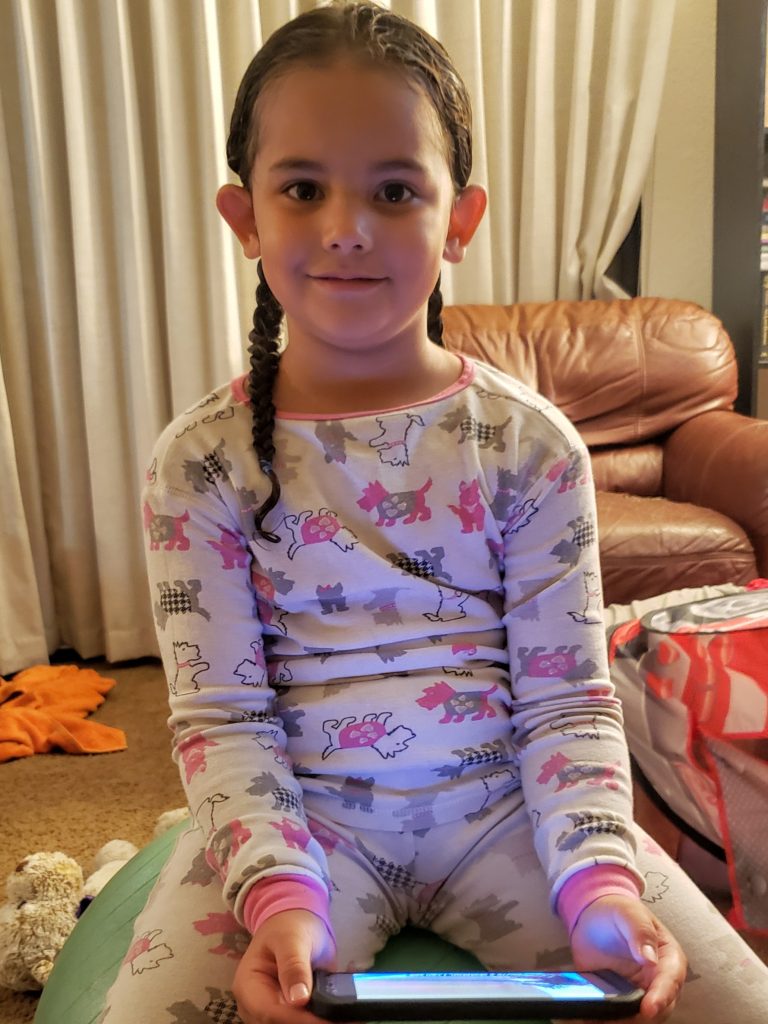Children need a source of truth, or they will seek one out on their own – likely the Internet or their friends. As Christian parents, it’s important that we teach them the Bible is the ultimate source of truth, and that as their parents, we will also tell them the truth. They can trust what we say because we are intentional about not lying, even when lying seems like the easier choice in the short term.
Do not lie to one another, seeing that you have put off the old self with its practices and have put on the new self, which is being renewed in knowledge in the image of its Creator.
Colossians 3:9-10
Imagine a day that has been filled with normal preschooler and toddler activity: roughhousing, playing, games, food, messes, tears, naps, jobs. It’s one of those days with ups and downs, but overall a long day that is now in what we call “the danger hour.” Everyone’s a little tired, but you cannot let anyone fall asleep lest they take a short, late nap and then stay awake until midnight. In this moment, when you are counting down minutes, a little voice asks, “Mommy, why did God make plants?” (Or insert another complex question that inquisitive minds seek the answer to…)

At this moment, there is a decision: I can say “I don’t know” and continue in my quietly desperate attempts to keep all the children engaged and awake, or I can consider the question and give an answer as honestly as I can. There are too many times I have chosen the first. Chosen to sin against God and against my child because I was too lazy to give an honest answer. Of course I know why God created plants; not all the reasons, of course, but enough to answer my child’s question. God is an artist, and plants are beautiful. They also sustain life on Earth. They absorb carbon dioxide from the air and release oxygen, which allows us to breathe. They are a source of food and a source of shelter.
Any of these could answer the question, and maybe the conversation is over or maybe it starts a longer opportunity of learning. We can read the creation story in Genesis 1. We can look up pictures of different plants on my phone and talk about all the different things they do with the added bonus of using up time in danger hour so that no one goes to sleep. Win all around.
There are also times when I don’t have the bandwidth for a long and involved conversation. Here is another honest answer that we can always give to our kids: Mommy is too tired for hard questions right now. Can you ask me that again at a different time? Honesty with children also means honesty about our limits and our challenges. It’s an invitation to have the conversation later, but it doesn’t shut them down like the lie “I don’t know.” If I always say “I don’t know,” even when it’s very clear I do know at least some of the answers, my kids are likely to stop asking me questions. When that happens, I have shut down both an avenue of connection and an avenue of information for my child. They also learn that my words cannot necessarily be trusted.
Let what you say be simply ‘Yes’ or ‘No’; anything more than this comes from evil.
Matthew 5:37
Another time I have found it “easier” to lie is when I tell my kids that we will do something rather than to explain why that’s unlikely to happen. For example, early in the morning, they ask if we can go to the park and I say “Maybe later” without considering whether or not we will actually go later. When we inevitably don’t go later, I lied to them because I was not careful with my words. It’s important for me to be focused on what I tell the kids we will do. If I say they can have candy today, I need to make sure they get candy at some point today. If I say we will paint, we need to paint. My “yes” needs to be “yes.” Otherwise I am lying to my children and teaching them that lying is acceptable.

Of course,tThere are times when I tell my older two kids that we will do a specific activity during the day, and then my youngest has a really hard day with endless meltdowns. We end up spending most of the day working with Fin, and we never get to the planned activity. When this happens, I make sure to take time to explain how the situation changed and to apologize to the kids that I am not going to be able to keep my word. I empathize with their disappointment. Perfection is never the standard. Honesty is.
The other side of the same coin is to let your “no” be “no.” Sometimes this one is even harder, which is why I again have to consider my words before I say them. If I tell Fin no, he cannot eat food outside the kitchen, and then he throws a massive tantrum and I give in because it’s easier than fighting, he has learned that my “no” does not actually mean “no.” My “no” means “push harder to get what you want.” Consistency and honesty demonstrates to my children that I mean what I say and that they can trust my words. When I get it wrong, which I often do, I explain that I was wrong. I apologize. I tell them I will do better next time.
For we aim at what is honorable not only in the Lord’s sight but also in the sight of man.
2 Corinthians 8:21
Another area in which honesty can be challenging is when our kids ask us questions about embarrassing or controversial topics. It can seem easier to brush the question away or say “I don’t know” or “you’re too young” or “go ask your dad.” Again, I need to make it a priority to answer my kids in an honest, age-appropriate way. In the very early years, children start asking questions about their bodies, and about other people’s bodies. Short, direct answers usually suffice.
For example, “Mommy, Sister doesn’t have a penis!” “No, she doesn’t. You have a penis, and she has a vulva because God made you differently.” “Oh ok.” *continues spitting on the wall or other gross things young kids do in the bathtub*

Ana Lia found drug paraphernalia on the sidewalk one time and asked what it was. “That is something people use to smoke marijuana. It’s a drug that isn’t good for your brain. Please don’t pick it up.”
It’s not always easy, but I make a concerted effort to deny myself and lean into these conversations. I want my kids to be able to ask me anything, and I want to be the first place they come for an honest answer. I will tell them honestly if I don’t know then try to help them find the answer. I will redirect them to the Bible so they know it is an ultimate source of truth.
Lying lips are an abomination to the Lord, but those who act faithfully are his delight.
Proverbs 22:12